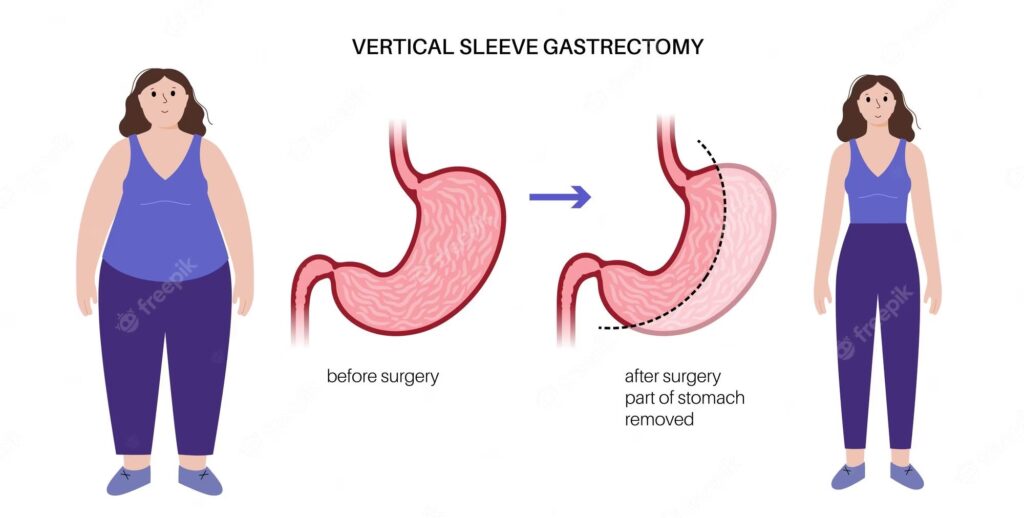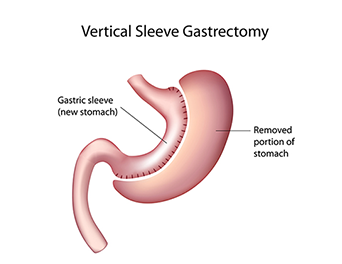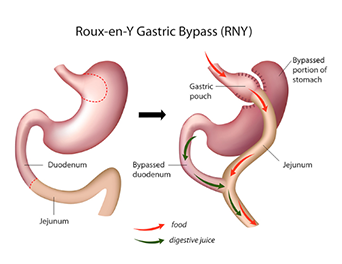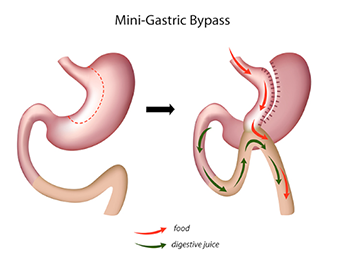

Image Source: FreeImages
Introduction
Gestational weight gain (GWG) plays a crucial role in pregnancy outcomes, and for women who have undergone bariatric surgery, it becomes an even more significant factor to consider. Bariatric surgery, a highly effective treatment for obesity, not only aids in weight loss but also has implications for fertility and pregnancy. In this article, we will explore the impact of GWG after bariatric surgery on pregnancy outcomes and the importance of adequate care during this unique period.
The Relationship Between Weight Loss and Fertility
Excess weight can have adverse effects on fertility, as it may disrupt hormonal balance, leading to irregular ovulation cycles and an increased risk of conditions such as polycystic ovary syndrome (PCOS). Weight-related health problems, such as diabetes and metabolic syndrome, can further complicate the ability to conceive. However, weight loss achieved through bariatric surgery can support fertility efforts by improving hormonal balance and reducing the risk of related health issues.
Maintaining a Healthier Weight during Pregnancy
Once pregnancy is achieved, maintaining a healthier weight becomes crucial for reducing the risk of obesity-related complications. Conditions such as miscarriage, preeclampsia (dangerously high blood pressure during pregnancy), gestational diabetes, macrosomia (a too-large baby), congenital birth defects, and others are more prevalent in women with higher body mass index (BMI). By achieving and maintaining a healthier weight, pregnant individuals can minimize these risks and ensure better outcomes for both themselves and their babies.
Multidisciplinary Care for Pregnancy after Bariatric Surgery
Women who have undergone bariatric surgery require specialized care during pregnancy. A multidisciplinary team consisting of experts in bariatric surgery, obstetrics, and nutrition is essential to provide comprehensive and tailored care. Bariatric surgeons who have experience with post-surgery pregnancies, obstetricians, and maternal-fetal medicine specialists can work together to monitor nutritional status, ensure proper growth of the baby, and address any specific needs that may arise.
The Role of a Registered Dietitian
Working with a registered dietitian who specializes in weight-loss surgery is highly beneficial for patients during pregnancy. These professionals can help individuals understand their nutritional requirements, ensure appropriate supplementation, and guide them in making healthy food choices. By collaborating with a dietitian, patients can optimize their nutritional intake and support the growth and development of the baby.
Timing of Conception after Bariatric Surgery
Timing plays a crucial role in achieving positive outcomes after bariatric surgery. It is generally recommended that individuals wait 18 to 24 months after the surgery before attempting to conceive. This waiting period allows for weight stabilization, maximizes weight loss, and reduces the risk of potential complications. It also encourages healthy weight gain during pregnancy, which is essential for the well-being of both the mother and the baby.
Avoiding Weight Loss during Pregnancy
Weight gain is vital for a healthy pregnancy, and individuals who have recently undergone bariatric surgery should avoid calorie restriction once they conceive. While it may be a significant shift for those who have had surgery to lose weight, it is crucial to provide sufficient nutrients for the baby’s growth. Collaborating with a bariatric dietician can help individuals make appropriate food choices and ensure they gain the necessary weight during pregnancy.
Nutrient Deficiencies and Supplementation
Pregnancy after bariatric surgery increases the risk of nutrient deficiencies due to reduced caloric intake and potential absorption issues. It is essential to closely monitor the nutritional status of pregnant individuals through regular screenings, ideally starting before conception. Based on individual needs and surgical history, supplementation of essential nutrients such as protein, folate, iron, vitamin B12, calcium, and vitamin D may be necessary. Prenatal vitamins, along with additional supplements, can help ensure the well-being of both the pregnant individual and the developing baby.
Healthy Pregnancies and Uncomplicated Deliveries
With proper care and attention to nutritional needs, most individuals who have undergone bariatric surgery can achieve healthy pregnancies and uncomplicated deliveries. While the data on the likelihood of requiring a cesarean section after weight-loss surgery is conflicting, proactive management and close monitoring can minimize the risks. Discussing individual risk factors with an obstetrician can provide insights into the possibility of a cesarean section. Breastfeeding is also encouraged, as it is generally unaffected by bariatric surgery, but continued supplementation is necessary to meet increased nutritional requirements while nursing.
Conclusion
Pregnancy after bariatric surgery requires careful attention to gestational weight gain and nutritional needs. By maintaining a healthier weight, individuals can improve their chances of conception and reduce the risk of obesity-related complications during pregnancy. Working with a multidisciplinary team, including bariatric surgeons, obstetricians, and registered dietitians, ensures comprehensive care and optimal outcomes. Adequate gestational weight gain, supplementation, and regular monitoring of nutrient status are crucial for the well-being of both the pregnant individual and the baby. With the right support and care, individuals who have undergone bariatric surgery can have successful pregnancies and deliver healthy babies.
Remember, if you have any questions or concerns about pregnancy after bariatric surgery, consult with your healthcare provider for personalized advice and guidance.








